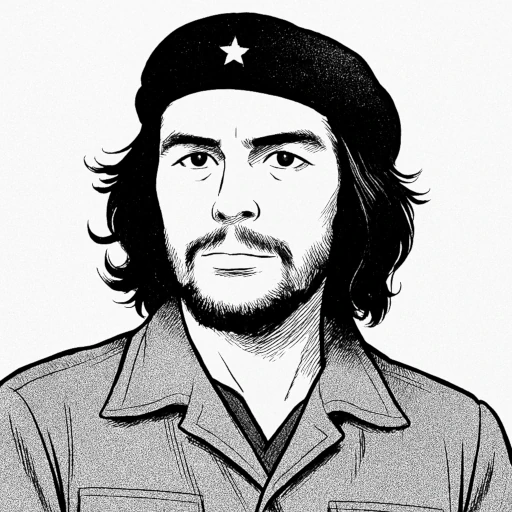“The revolution is not an apple that falls when it is ripe. You have to make it fall.”

- June 14, 1928 – October 9, 1967
- Born in Argentina
- Revolutionary, doctor, writer, politician
table of contents
Quote
“The revolution is not an apple that falls when it is ripe. You have to make it fall.”
Explanation
In this quote, Che Guevara emphasizes the active role required in initiating a revolution. He rejects the idea that societal change will happen organically or passively, like an apple falling when it is ripe. Instead, he argues that revolution is a deliberate, forceful action that must be actively created through organization, struggle, and commitment. For Guevara, revolutionary action is not something that waits for ideal conditions, but something that must be actively forced into existence, even if the situation is not yet “ripe.” This speaks to his belief that the oppressed should not simply wait for change but should take the initiative to bring about their own liberation.
Guevara’s own experience in the Cuban Revolution reinforced this philosophy. He, alongside Fidel Castro, did not wait for favorable political conditions but took direct action to lead a guerrilla war against the Batista dictatorship. Guevara’s involvement in other revolutionary movements in Latin America further cemented his belief in the need for constant revolutionary struggle, even in the face of adversity. His quote reflects the conviction that revolutionary leaders must create the conditions necessary for change, often through persistent struggle and sacrifice, rather than waiting for societal collapse or ideal opportunities.
In contemporary terms, this statement resonates with activists and movements that believe in proactive change, especially in the face of social, economic, or environmental injustices. For example, climate activists or social justice movements may feel that change will not come without significant effort, and thus they must organize, protest, and sometimes disrupt the status quo in order to create the conditions for meaningful reform. Guevara’s words remind us that revolutionary change is often a struggle against established powers, and patience alone is rarely enough to achieve the profound shifts needed to address systemic problems.
Would you like to share your impressions or related stories about this quote in the comments section?
